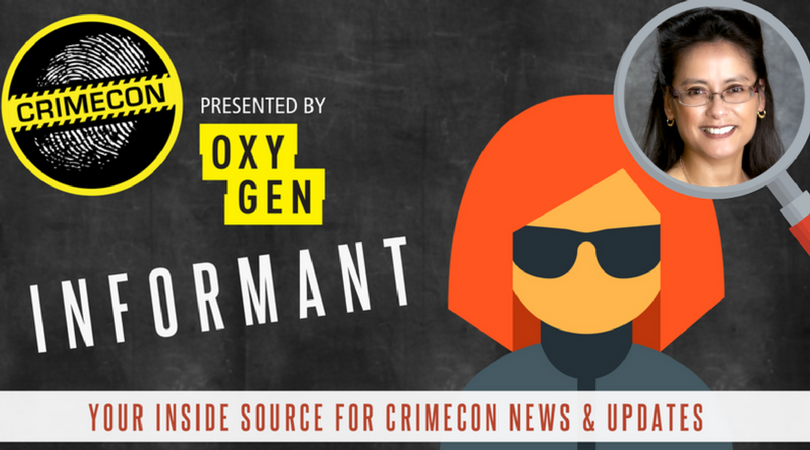Alice de Sturler Chips Away at Long-Forgotten Cold Cases
Many of us are attending CrimeCon because we share the same passion for the pursuit of justice, we want to keep the memories of victims alive, and we want to keep unsolved crimes in the spotlight until they’re solved. But if you ask me, the underlying factor that gives momentum to that fascination is mystery. When cases go cold and seem impenetrable and unsolvable, it’s human nature to try to solve the mystery.
Alice de Sturler is a non-practicing lawyer and human rights activist who investigates cold cases and wrongful convictions. Her blog Defrosting Cold Cases is one of the most comprehensive collections of information about missing persons, unsolved crimes, and other cold cases.
She will join us at CrimeCon for a panel discussing citizen detectives with Thinking Sideways Podcast and Websleuths’s Tricia Griffith. This is where I usually tell you we talked about what guests can expect from her session at CrimeCon, but Alice is intriguingly secretive about it. I got more session information out of Nancy Grace (coming soon) than I did from Alice. Which makes me want to catch the panel even more.
CCI: You earned your law degree but chose not to practice. Was it always your intention to investigate cold cases and assist other attorneys or investigators with them?
I started out as a human rights defender for Amnesty International Switzerland. Part of my duties involved American capital punishment cases. That work together with my curiosity for “Why do people do this?” did eventually lead me down this path.
CCI: When did your interest in cold cases and crime in general begin?
Studying criminal law and criminology deepened my interest in human behaviour, but I cannot pinpoint it to a time period. When I started working on the capital punishment case of William Thomas Zeigler with Amnesty in the 1990s, I started to ask myself what I would do if this was an unsolvable case. Later I had the opportunity to work with police departments on their cold cases. That’s where the idea formed to start a blog.
CCI: What’s your process for selecting cold cases to research or feature?
I receive many emails or social media posts from victims’ families who suggest their loved one’s case for my blog. They all go on my to-do list in the order in which I receive them. I check to see if there’s a wealth of information on the web or not because I like to give attention to cases from the pre-DNA era that have no web presence at all. But even then, the key factor remains whether I have something to add. That’s what my readers come for and specifically ask: “What do you think happened?” Every month I feature the “ Case of the Month.” As I am in Indiana in June, the Cold Case of the Month for June will be from Indiana.
CCI: How do you handle cases with little to no evidence or leads to go on?
I try to find as much as I can in the public domain, email the victim’s family or friends who suggested the case, check comments below articles, check in books, footnotes, etc. Often I ask family members to send me some memories so at least, we can make a memorial post. If there really isn’t anything else known about the case I summarize it and honestly tell my readers that this is all I have. If something new surfaces in the future I will update those posts.
CCI: Curious about your opinion on the Abby Williams and Libby German murders. Some say it’s gone cold already. Do you think that’s one you’ll research?
There is a lot going on with forensics and the authorities understandably hold back. It isn’t cold. Whether I will blog about it? Not sure.
CCI: What advice would you give to armchair detectives who are passionate about solving these cases?
Welcome to Cold Cases 101. Three tips:
#1: Be brutally honest with yourself. If you are in this to crack the case in 45 minutes flat or you want fame and glory, forget it. Do something else.
#2: Find out what works for you. You cannot cover all cold cases from every country. Earth is a big planet so set limits as to location, which type of crimes (homicide, the missing, the unidentified, or wrongful convictions), time periods, and so on.
3#: Find the medium that fits your comfort level. Not everyone is camera-ready and not everyone can put their train of thought on paper. And that is okay; we are all different. Only when you are comfortable with your blog, vlog, podcast, forum, etc. will you be able to dig deep and come up with unique content. That is your contribution. Your take on the matter.
CCI: What do you have in store for us at CrimeCon?
If I tell you will not come to my panel session on Sunday!
Alice will discuss the merits of citizen detectives at a joint panel with Team Sideways and Websleuths's Tricia Griffith. Sunday day passes are still available if you'd like to catch the session!

